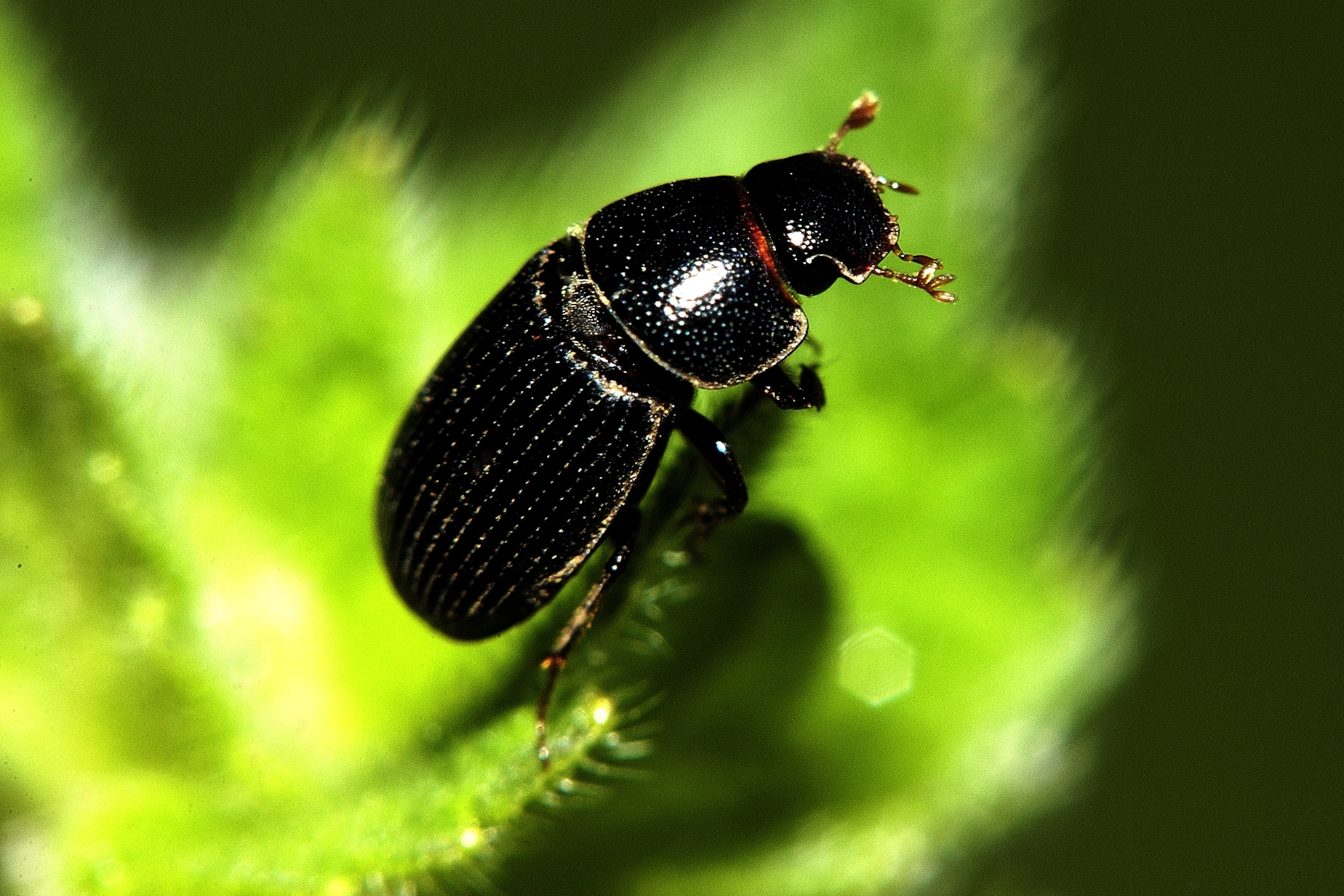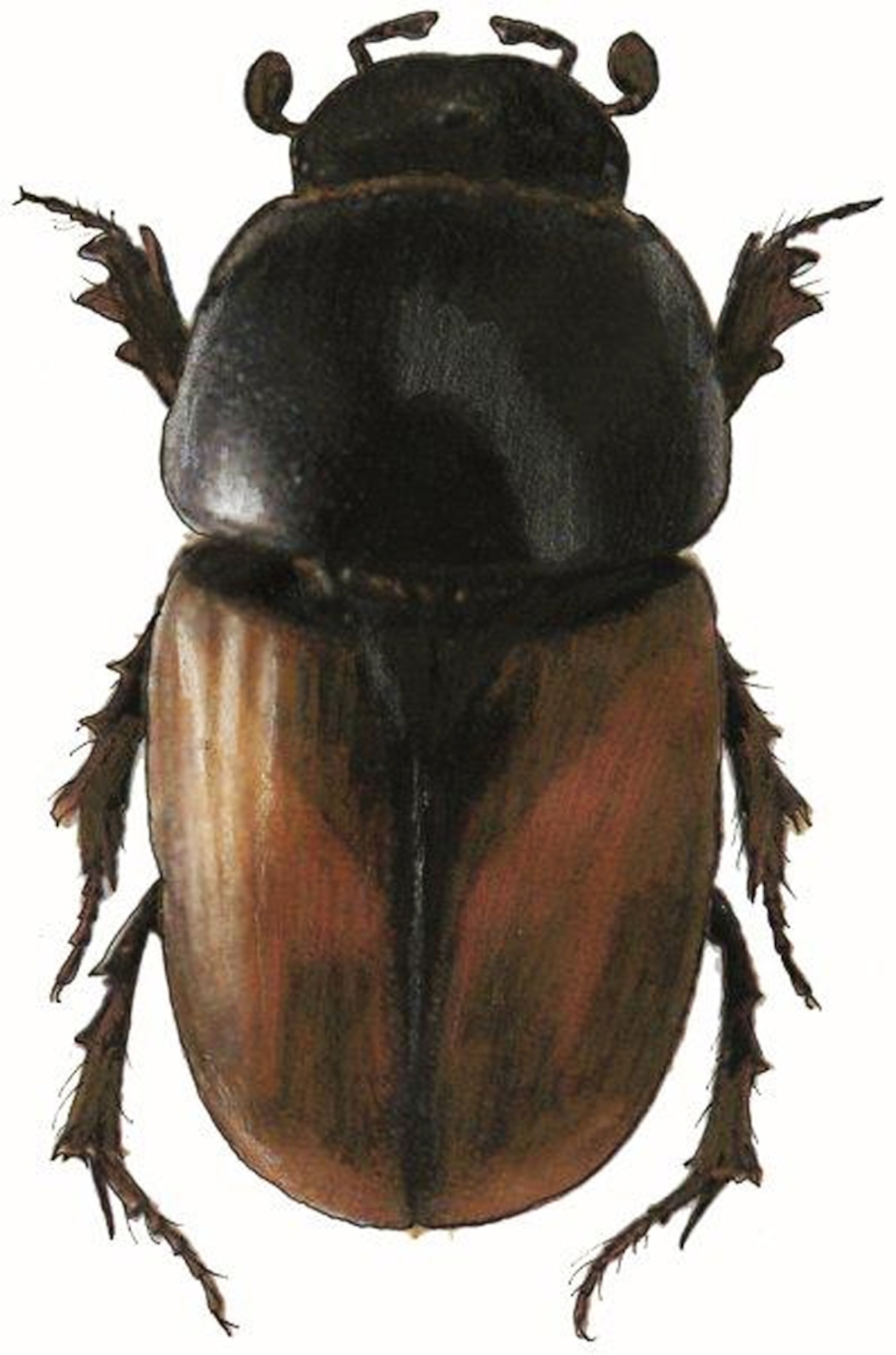
Can Dung Beetles Battle Global Warming?
The poo-loving dung beetle might just be a weapon in the battle against global warming, a new study says.
It may seem like an unlikely environmental hero. But the dung beetle, with its sordid habit of laying eggs in and eating cow poo, might just be a weapon in the battle against global warming.
Agriculture, you see, is a gassy business. The 1.3 billion large ruminants—dairy cows and beef cattle, buffalo, sheep, goats—that burp, fart, and poop around the world emit more greenhouse gases than does the transportation industry, according to the UN. (See an interactive on the greenhouse effect and global warming.)
These animals are responsible for about a third of global emissions of methane, a gas that makes up half of farming's contribution and is even more potent than the much-maligned CO2. (The other big methane offenders: the natural gas/petroleum industries and landfills.)
So any animal helping to quell gas release invites investigation. In a paper
published August 7 in the journal PLOS ONE
, Atte Penttilä and colleagues from the University of Helsinki report on experiments designed to see whether dung beetles affect how much methane is released from cow patties, the dung heaps that dot farm pastures.
Dung beetles, by the way, dig burrows into pasture feces and feed on the droppings of cows and other ruminants. They also deposit their eggs in the excrement, and their hatchlings feed on the same stuff. (Watch a video of an African dung beetle at work.)
The answer to the methane question was yes. The scientists found that cow patties with beetles, specifically Aphodius species, rummaging around in them released nearly 40 percent less methane over a summer period than beetle-free cowpats did.
Illustration by Kari Heliövaraa

Do Beetles Really Help?
The beetles' good work happens mainly as they dig around in the poop. Methane is born under anaerobic, or oxygen-free, conditions. So as the insects tunnel through the dung, they aerate it, changing the conditions so that less methane is produced within the pats. This translates to less methane gas released into the atmosphere. (Read about the effects of global warming.)
Importantly, the study also showed that the presence of the beetles in aging cowpats increased the release of another greenhouse gas, nitrous oxide. More studies will help clear up whether this cancels out their methane-related efforts.
"In terms of the net effect on global warming, I'd say the jury is still out," said study co-author Tomas Roslin. "Much of the methane emission from cattle escapes from the front and rear of the animal; less escapes from the dung pats.
“But the beetles' actions should be weighed into any calculations of net effects, so we don't miss the mark," he said.
Declining Dung—and Beetles
Sadly, like many animals these days, dung beetles are in decline. Roslin said that in Finland, for example, more than half of dung beetle species are threatened or near endangered.
The reasons include the lack of diversity in both dung and pasture that goes with fewer but more intensively managed farms, and the reduced quality of the dung—which nowadays contains more chemicals, such as anti-parasite drugs given to farm animals.
That's troubling, in part because even as the farm industry has suffered due to droughts, higher input costs, and the like, the worldwide demand for beef is only growing. (Related: "Will Your Next Burger Come From a Petri Dish?")
In the developing world in particular, emissions are on the rise as farms expand. Beetles alone can't contain greenhouse gases, of course, but "we do need to understand and account for the effects of such live agents in changing gas fluxes from dung," Roslin said. "We can't just think of [pats] as passive objects."
The best way to help beetles thrive and "do their thing on the gas fluxes" is to let cattle graze on variable types of outdoor pasture, Roslin said.
"If we lock our cattle into barns and treat their dung as waste, we will be blocking the very cycles" that might make a silent, but still significant, contribution to one of the world's hottest problems.